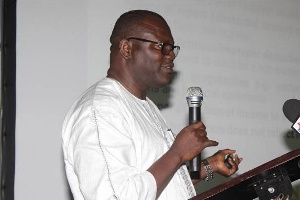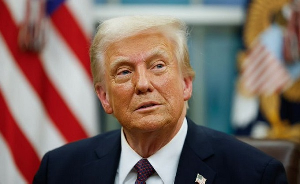The government’s move to withdraw tax exemptions, without parliamentary approval, with the promise of refund for investors who qualify for such refunds, could lead to a breeding ground for corruption, Abdallah Ali-Nakyea, a tax expert, has said.
“You will create a bureaucratic system, where somebody will be looking for kickbacks or incentives to grant you your refund, which is justly yours,” the Managing Partner at Ali-Nakyea & Associates, told the B&FT in an interview during the annual tax seminar on the budget statement, organised by Pentecost University College Graduate School (PUCGS) in Accra.
He added that, for a budget that promises speeding up growth, such tax refund moves could also lead to a lock up of capital for businesses for further expansion which could be counter-productive for government’s own business-friendly approach.
“If you do not speed up the refund processes and it even takes two weeks, the time value of money is important: because for those who are dealing with high cost of operations, we are talking about a lot of money,” he added.
Government, in the 2017 budget, stated that it will review exemptions currently granted to MMDAs, senior officials, contractors and suppliers, among others. The move according to the Finance Minister, Ken Ofori Atta is aimed at “tackling the systemic abuse in the exemptions regime.”
Per the review, beneficiary companies will rather be made to comply with all initial tax obligations and request for refunds after satisfying all obligatory payments under the country’s tax laws.
Data available shows that government tax exemptions loses is at a minimum of US$1.2billion with many stakeholders, including civil society organisations, calling for the withdrawal of these exemptions because they are not the main reasons investors choose Ghana over other countries.
Unlawful move by gov’t
But Mr. Ali-Nakyea noted that the move by government to withdraw these exemptions, though laudable to some extent, without referring to Parliament first, is, in the first place, unlawful.
“The issue is that we have certain businesses that may have contracts with government or government agencies that are approved by parliament. Under Article 174 of the constitution, it is only parliament that can grant the exemptions.
If parliament grants the exemptions and today, by a publication, government indicates that any person who has exemption or not has to pay duties and apply for a refund, the question is: under what laws are you operating? If you need to abolish the systems that exist, you need to pass a law. Don’t do that by a decree or publication in the papers,” he added.
To him, the best way to curbing the abuse of the system is to trace those who are abusing the system and dealing with them rather than generalising.
“Otherwise confidence in the system wanes, meanwhile the budget says it is intending to build a business friendly environment. Would that not be contradictory? My issue is that can’t we search for those people abusing the system and dealing with them by withdrawing their exemptions while we let those who have genuinely acquired them go on with their businesses,” he noted.
Resourcing the GRA
Mr. Ali-Nakyea is of the view that to stem the abuse of the system, the Ghana Revenue Authority (GRA) needs to be well resourced so it can track all imports and exports.
“What we need to do as a nation is to resource the GRA. They need the logistics and training to be able to identify illicit flow of funds. There have been illicit flows of money through our ports.
Since 2012, we have been losing a lot of revenue on tax exemptions, from 1.2 percent of GDP up to 1.92percent currently, meanwhile the percentage of GDP for infrastructure development stands at 1.7percent. This means that what we are losing to tax exemptions is more than we are spending on infrastructure.
We could have blocked all these leakages and done a lot of infrastructure development without having to resort to borrowing to build. So what is the problem? We have very beautiful laws but how are we implementing them?” he said.
The seminar
The seminar, which was held under the theme ‘The 2017 National Budget Statement in Perspective: Does it Answer the Economic Development Goals of Ghana?” attracted students of economics and finance.
It also saw presentations from Prof. Cletus K. Dordunoo, CEO of ClayDord Consult, who touched on socio-economic development, job creation and growth; and also Isaac Nyame, Managing Consultant at Ikern & Associates who delivered an ‘Analysis of the Tax and Revenue Mobilization Initiatives’ in the budget.
In his welcome address, Professor K.B Omane-Antwi, the Dean of the graduate school, stated that the budget carries a lot of good news.
He therefore called for more efficient institutions and attitudes that are conducive to an increase in productivity and to development in general. “Programme implementation has always been the bane of Ghana’s development challenge. Our institutions are corrupt,” he noted.
Business News of Tuesday, 11 April 2017
Source: thebftonline.com













